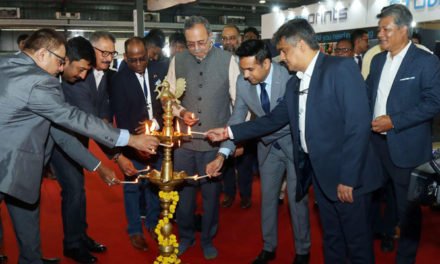 The Confederation of Indian Textile Industry (CITI) Chairman, Rakesh Mehra, congratulated the Government on a robust GDP growth projection of 6.4% for FY 2025, as per the Economic Survey 2024-25, reaffirming India’s economic resilience amid global uncertainties such as the slowdown in global manufacturing—particularly in Europe and parts of Asia—supply chain disruptions, and weak external demand.
The Confederation of Indian Textile Industry (CITI) Chairman, Rakesh Mehra, congratulated the Government on a robust GDP growth projection of 6.4% for FY 2025, as per the Economic Survey 2024-25, reaffirming India’s economic resilience amid global uncertainties such as the slowdown in global manufacturing—particularly in Europe and parts of Asia—supply chain disruptions, and weak external demand.
The survey highlights key challenges impacting the growth of the Indian textile industry, including an uneven playing field compared to global competitors, cumbersome export procedures that slow down logistics and increase costs, limited foreign direct investment (FDI), and heavy dependence on imported textile machinery. Additionally, the survey underscores the increased costs that textile industry might face in the coming years due to the global shift towards sustainable sourcing and compliance with stringent ESG (Environmental, Social, and Governance) norms.
“Industry has been pro-actively discussing several such issues with the Government. Under the leadership of the Hon’ble Minister of Textiles, Giriraj Singh, the Ministry of Textiles is extending essential support to the industry to navigate these challenges. The outlook for the Indian textile industry remains positive as per the survey also, and we are confident that the Government will continue to implement timely and effective policy measures to drive this growth,” stated Mehra.
To meet the increasing global demand for man-made fiber (MMF) textiles, the survey emphasizes the need for vertical integration and substantial investment in research and development (R&D). The Government’s Production-Linked Incentive (PLI) scheme is already fostering growth in the MMF sector, while the PM MITRA scheme is set to create world-class, standardized infrastructure that will enable the industry to adapt to evolving ESG requirements.
“While these initiatives have helped in moderate growth, strong investment incentivisation, specially for the MSMEs is needed for the targeted growth in this sector. There is a strong case for launching PLI 2.0 with a lower investment threshold and broader product coverage to benefit a larger segment of the industry. Additionally, expediting the implementation of PM MITRA parks will be crucial to ensuring the timely and effective impact of the scheme,” added Mehra.
He further informed that CITI has already submitted various policy recommendations to Government for driving growth in the Industry and we are hopeful that Government will consider our suggestions for the Budget 2025-26.
The Economic Survey 2024-25 reinforces the need for targeted policy interventions in the textile sector, including regulatory simplification, enhanced investments in technology and skill development, and stronger sustainability initiatives. As global trade dynamics continue to evolve, CITI remains committed to collaborating with the Government and industry stakeholders to ensure that India’s textile sector remains competitive, resilient, and future-ready.





















